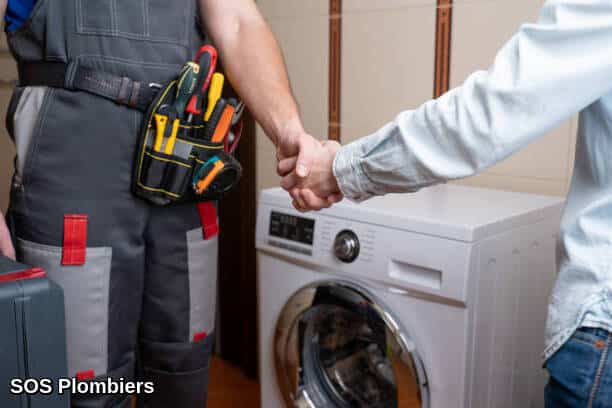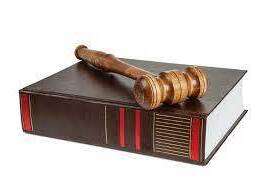Plumbing Responsibilities: Tenant vs. Landlord
First, this detailed guide explains the respective responsibilities of the tenant and the landlord regarding the maintenance and repair of plumbing in a rented property. Next, understand who is responsible for paying for various plumbing interventions, and finally, learn under which circumstances.
Allocation of plumbing costs: Who pays what?
In a rented property, when a plumbing issue arises, one often wonders: who covers the costs? Indeed, the answer varies depending on the cause and type of the problem encountered.
Routine Repairs: A Tenant's Responsibility
For small tasks, such as replacing seals or screws, it's generally the tenant's responsibility. These minor repairs are considered routine maintenance.
Major Failures: A Landlord's Affair
More serious issues, such as frequent blockages or failures due to wear and tear, fall under the landlord's responsibility. After all, they are in charge of the overall maintenance of the property.
The Fine Line of Negligence
However, if an issue is caused by the tenant due to negligence or careless action, then they are responsible for the costs. Moreover, any work in a rental property should be approved by the landlord.
The duties of the tenant according to the Civil Code of Quebec
Renting a property goes beyond a simple exchange of space for rent. Indeed, the Civil Code of Quebec specifically sets out the obligations of the tenant in terms of preserving the rented property.
Respect and care for the property
First and foremost, it is imperative that the tenant treats the rented property with respect. This means avoiding intentional damage, using the facilities appropriately, and avoiding any action that could harm or reduce the value of the property. Working with caution and diligence ensures that the dwelling remains in a state comparable to that at the time of move-in, taking into account normal wear and tear.
Assume Certain Repairs
The Civil Code specifies that certain routine repairs may be the tenant's responsibility. These can include minor repairs or damages caused by the tenant's negligence. Furthermore, if specific repairs are mentioned in the lease as being the tenant's responsibility, they must be adhered to.
Tolerate Urgent Repairs
The tenant must tolerate urgent or essential repairs, even if they are unexpected or inconvenient. These repairs, although temporary, may be necessary to preserve the integrity of the building or prevent future damages.
Inform the Landlord
Communication is the key to a healthy rental relationship. The tenant must promptly inform the landlord of any serious defect or safety risk to the dwelling. This transparency helps prevent worsening problems and allows the landlord to act quickly to resolve the situation.
In summary, being a tenant is a shared responsibility that involves respecting the rented property, communicating effectively with the landlord, and ensuring that the space is maintained with care and respect.
SCENARIOS WHERE THE LANDLORD COVERS PLUMBING COSTS
Plumbing maintenance is often a major concern in rental properties. While some issues may arise from negligence or misuse by the tenant, others unquestionably fall on the landlord. Let's dive into the analysis of these specific situations.
Issues Stemming From Lack of Maintenance
A tenant expects functional plumbing when moving into a new residence. If a problem stems from a maintenance flaw predating the rental period, the landlord bears the costs. For instance, if pipes are blocked due to a prior buildup, or if a faulty appliance wasn't repaired or replaced, the landlord is obligated to cover the expenses.
Force Majeure Cases
Natural disasters can inflict severe damage to plumbing. Faced with unpredictable events, the landlord assumes the repair costs of the damaged installations. The landlord must also consider the indirect consequences of such a disaster, such as the impact on the piping or drainage system.
Compliance With Standards
Local and national legislation often sets strict standards for housing and plumbing. These regulations aim to ensure the safety and well-being of tenants. Any issue resulting from non-compliance with housing standards is the landlord's responsibility. If a faulty water heater causes an incident or if there's a pipe leak, the landlord must ensure repairs and regulatory compliance.
In conclusion, although renting involves shared responsibilities, the landlord has a duty to provide a safe, functional, and standard-compliant home, especially concerning plumbing.
RESOLVING CONFLICTS WITH THE LANDLORD
While relationships between tenants and landlords generally proceed smoothly, disagreements can arise, particularly concerning repairs and their financing. Addressing these disputes effectively and calmly is essential to ensure the well-being of each party involved.
Who Should Contact the Plumber?
The first step when a plumbing problem arises is determining who should call in a professional. Even though the tenant might be the first to notice an issue, it's usually advised for the landlord to initiate the repair process.
- Preliminary Communication : When a problem is detected, the tenant should inform the landlord as soon as possible. This can be via a call, an email, or any other agreed-upon means of communication between both parties.
- Initiation of Repairs : Once informed, the landlord should take responsibility for contacting the plumber or the appropriate service. This ensures the landlord's approval of the chosen professional and clarity on costs and responsibilities from the start.
- Agreement on the Work : Although the landlord initiates the process, they must get the tenant's approval for the time and date of the repairs, ensuring they don’t disrupt the tenant's daily life.
Documentation and Follow-Up
In case of disagreements about responsibility or costs, documenting all communications and actions is crucial. The tenant can take photos of the problem, save all exchanged emails or messages, and note down any calls or meetings concerning the issue.
Mediation
If the conflict cannot be resolved through direct communication, the parties might consider resorting to mediation. A mediator facilitates communication between tenants and landlords, clarifying disagreements, and seeking a mutual solution.
Legal Consultation
If all other avenues of resolution fail, it might be necessary to consult with an attorney specialized in real estate law for advice on the best way forward.
In summary, the key to effectively resolving conflicts between tenants and landlords lies in open communication, mutual understanding, and a willingness to reach an agreement beneficial for both parties.
LOOKING FOR A PROFESSIONAL PLUMBER IN MONTREAL?
For all your plumbing needs, whether they are routine repairs or emergencies, the team at SOS Plumbers is here for you. Rely on swift, efficient, and courteous service. Contact us for a no-obligation estimate.




